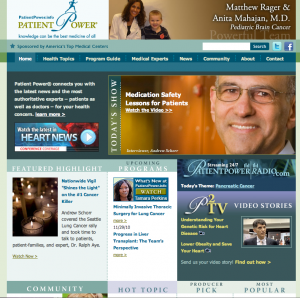 Over the past decades, the patient-doctor relationship has changed dramatically in the United States. This may be due to changes in the amount of time that patients spend with their doctors and the rising costs of health care. Consequently, patients often spend more time educating themselves on their health outside of the doctor’s office. While the Internet is full of health care resources, it is important that the public understands which websites are reliable and have access to accurate information.
Over the past decades, the patient-doctor relationship has changed dramatically in the United States. This may be due to changes in the amount of time that patients spend with their doctors and the rising costs of health care. Consequently, patients often spend more time educating themselves on their health outside of the doctor’s office. While the Internet is full of health care resources, it is important that the public understands which websites are reliable and have access to accurate information.
One website that provides an authoritative medical voice is Patient Power, which educates the public on a large number of health care topics through audio interviews with scientific and medical experts. Andrew Schorr founded patient Power in 2005, “to empower patients and help them get the best care to treat their illness and to go on with a high quality of life.” A 14-year leukemia survivor himself, Schorr states that he wants to, “help patients be in a strong position to ask questions and have an educated discussion with their provider.”
Patient Power performs informational interviews with help from leading medical centers and advocacy groups. These recordings are then freely disseminated on websites and social media outlets. The website posts interviews on topics that range from Acute Leukemia to Weight Management, and recently covered Oncofertility with a joint expert and patient interview.
In a webcast that was aired on November 18, Dr. Teresa Woodruff discussed some of the established and experimental treatments in fertility preservation for children and adults. In the interview, Schorr also talked with Holly, a two-time cancer survivor and fertility preservation patient who relayed her experiences undergoing egg retrieval and embryo banking with her husband. While the Internet may contain inaccurate or incomplete medical information, websites like Patient Power providing expert information for the public so they can actively participate in the health care decision-making process with their physicians. What authoritative sources do you use to gain information about your health?

